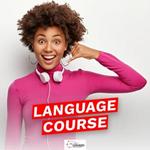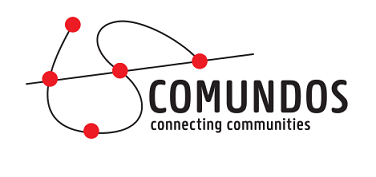Language Courses
 Intercultural dialogue is a process that comprises an open and respectful exchange or interaction between individuals, groups and organisations with different cultural backgrounds or world views. Among its aims are: to develop a deeper understanding of diverse perspectives and practices; to increase participation and the freedom and ability to make choices; to foster equality; and to enhance creative processes.
Intercultural dialogue is a process that comprises an open and respectful exchange or interaction between individuals, groups and organisations with different cultural backgrounds or world views. Among its aims are: to develop a deeper understanding of diverse perspectives and practices; to increase participation and the freedom and ability to make choices; to foster equality; and to enhance creative processes.
 Language is one of the most important subjects in all kinds of education since people need to comprehend what they listen to or read as well as be capable of expressing themselves. The main objective of this lesson is to use digital stories so that learners improve their language skills by learning specific vocabulary related to some topics, and practicing reading, listening, and written comprehension. Besides, this lesson allows students to learn about different topics and therefore construct their own vision of problems, facts, etc. and develop their critical thinking.
Language is one of the most important subjects in all kinds of education since people need to comprehend what they listen to or read as well as be capable of expressing themselves. The main objective of this lesson is to use digital stories so that learners improve their language skills by learning specific vocabulary related to some topics, and practicing reading, listening, and written comprehension. Besides, this lesson allows students to learn about different topics and therefore construct their own vision of problems, facts, etc. and develop their critical thinking.
Intercultural dialogue is a process that comprises an open and respectful exchange or interaction between individuals, groups and organisations with different cultural backgrounds or world views. Among its aims are: to develop a deeper understanding of diverse perspectives and practices; to increase participation and the freedom and ability to make choices; to foster equality; and to enhance creative processes.[
Objectives:
- To promote good reading and listening comprehension.
- To teach specific vocabulary regarding different topics.
- To make students improve their written skills by answering several questions.
- To use digital tools as a way of teaching languages.
Example:
The exercise consists of showing to students a story. It is possible that they do not understand much since the story can be related to a topic or problem that they do not know or do not understand well. Once they watch the video, they have to answer several questions so that teachers can evaluate their comprehensive skills and language.
Questions and tasks (it is not necessary that students write their answers, the teacher can also create a debate):
- Who is telling the story?
- Where does the author live?
- What is his/her profession? What does it consist of?
- What is the story about?
- Select three keywords of this story
*During the exercise, the teacher explains the specific vocabulary.
After the questions, teachers direct the debate to the theme of the video:
- Is this information true? Why?
- Did you already know about the topic?
- Did you learn something new? What?
- What can we, as citizens, do about it?
Other possible and extra activities:
- Give a Text/translation and omit some words that were explained during the debate.
- Another practice consists of changing the list of problems/solutions in order and asking students to use a numbering system to indicate the correct order.
- Repeat vocabulary to fix words.
- Students utilize the new vocabulary to create another story of their interest (stating a problem or situation they have experienced and that want to share with the world).
→ An example:
- Importance of mangroves (Mecuburi -Mozambique)
Some questions that the teacher can ask:
-
What is the main reason that mangroves are being cut? (shrimps, ...)
-
Why are mangroves important?
Stories were made in 5 languages
Stories spoken in french were made in Benin, Rwanda, Cameroon and Senegal
Stories spoken in english were made in Cameroon, South Africa, Philippines and Belgium ( mixed languages in Belgium and Cameroon, look for the original language)
Stories spoken in portuguese were made in Brazil and Mozambique
Stories spoken in spanish in Honduras and Guatemala
One story spoken in dutch
A gift for Comundos
Over the years, Comundos has helped remote communities around the world by teaching critical thinking, media literacy and the use of communication technology.
To do this effectively, we need your support for computers, translations, courses and social media management.
Thank you .
BE11 1030 2973 8248




